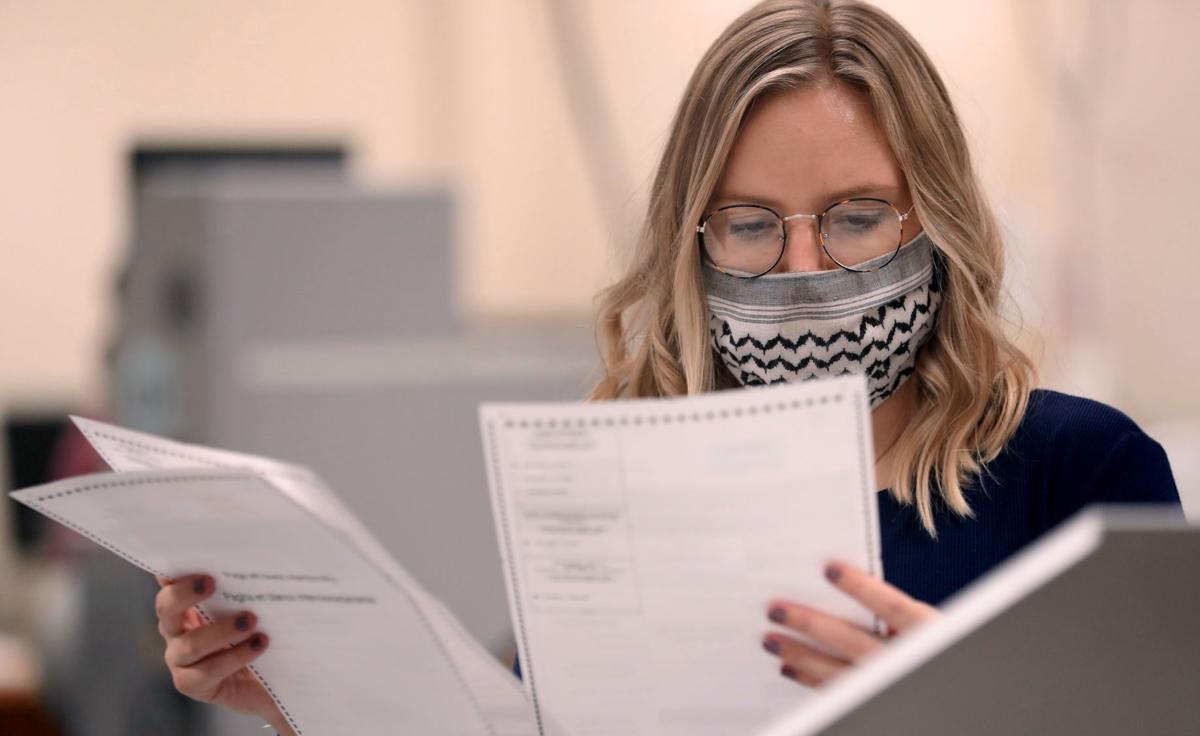PHOENIX — The state House approved legislation that could send prosecutors or criminal investigators to the doors of some people whose signatures on their early ballots don’t match what is on file.
The measure approved by the Republican-controlled House on a party-line vote sets up new procedures for what happens in the case of mismatched signatures.
Under current law, county election officials attempt to contact the voter to determine if there is a reason.
That could be illness or age. Or it could be that someone else got hold of the person’s early ballot and decided to fill it out.
If the contacted voters affirms he or she cast the ballot and provides an explanation for the signature issue, the ballot is considered “cured.’’ If the voter doesn’t respond, the ballot is set aside and not counted.
Senate Bill 1241 would now require election officials to send the information to the county attorney or attorney general for further investigation.
Rep. John Kavanagh, R-Fountain Hills, acknowledged that could end up with voters finding an investigator at their door.
That prospect alarmed Rep. Kelli Butler, D-Paradise Valley.
“If it isn’t cured, the assumption is going to be made that you are fraudulently casting that ballot,’’ she said. “And then the attorney general is going to get involved. I believe that is going to intimidate voters.’’
Kavanagh, however, said the move is necessary to ferret out voter fraud. “It could be fraudulent,’’ he said. “It could affect the outcome of an election.’’
Those votes aren’t counted
House Minority Leader Reginald Bolding, D-Laveen, said there’s a flaw to Kavanagh’s argument.
He pointed out that what’s at issue here are only ballots where signatures do not match — and only when the voter cannot be contacted.
In each case, Bolding said, the ballots now are put aside and not counted. That means there is no way for any of these ballots to have changed the outcome of any election, he said.
Kavanagh said that’s irrelevant. “Just because the ballot is not counted doesn’t mean the person didn’t attempt to illegally vote and doesn’t mean the person didn’t commit felony forgery,’’ he said.
Rep. Diego Rodriguez, D-Phoenix, said the legislation is based on what he said is a baseless premise that there is voter fraud. He challenged Kavanagh to provide some number of such cases.
Kavanagh acknowledged he could not. “Given that right now, because this isn’t law, I have no idea,’’ he said. “Because, guess what? Nobody’s checking.’’
Kavanagh said, though, that it’s wrong to just “forget about it’’ when a voter can’t be contacted about a mismatched signature, even if the ballots are not counted.
“How do they know if it’s somebody with Parkinson’s versus somebody doing fraudulent ballots?’’ he asked.
“You don’t know,’’ Kavanagh continued. “Right now, Arizona is staying willfully blind of some degree of voter fraud.’’
He also brushed aside questions about the potential cost to taxpayers of having prosecutors go out and track down voters with mismatched signatures.
“That’s their job,’’ Kavanagh said. “`They look into potential illegal activity.’’
More recounts
The House, on that same party-line margin, approved another measure to require recounts in more elections.
Under current law, there is an automatic recount in a statewide race or ballot measure if the margin of difference is 0.1% or fewer than 200 votes, whichever is lower. Senate Bill 1083 would change that to a flat 0.5% difference.
That number is significant.
In the last presidential race, Joe Biden defeated Donald Trump by 10,475 votes out of 3.33 million cast for the two candidates, not counting those who voted for others on the ballot. That did not trigger the recount based on the 200-votes figure.
But it would have meant a recount had SB 1083 been in effect as any difference less than 16,670 would have mandated it.
Kavanagh said the larger figure makes sense given that glitches in the system could change the outcome.
“Current law will ... have a razor-thin election presumed to be OK and the results certified which can literally disenfranchise just razor-thin margins shy of half the voters who voted against that candidate,’’ he said.
Nothing in the measure, which still needs final Senate approval, requires the kind of audit now being conducted by the Senate of the 2020 election. Instead, it simply requires the ballots to be fed back through the same automatic counting equipment to verify the results.





